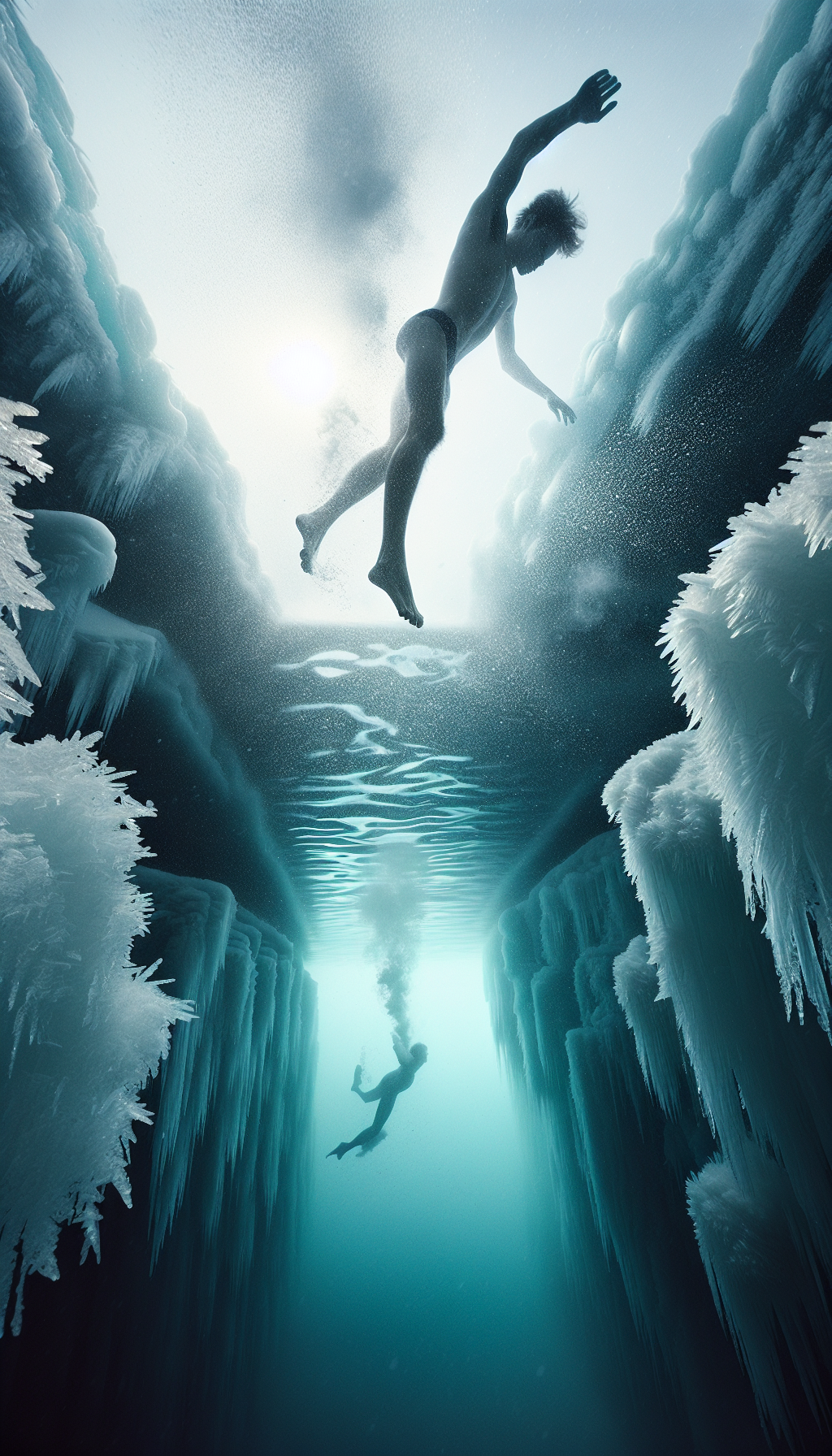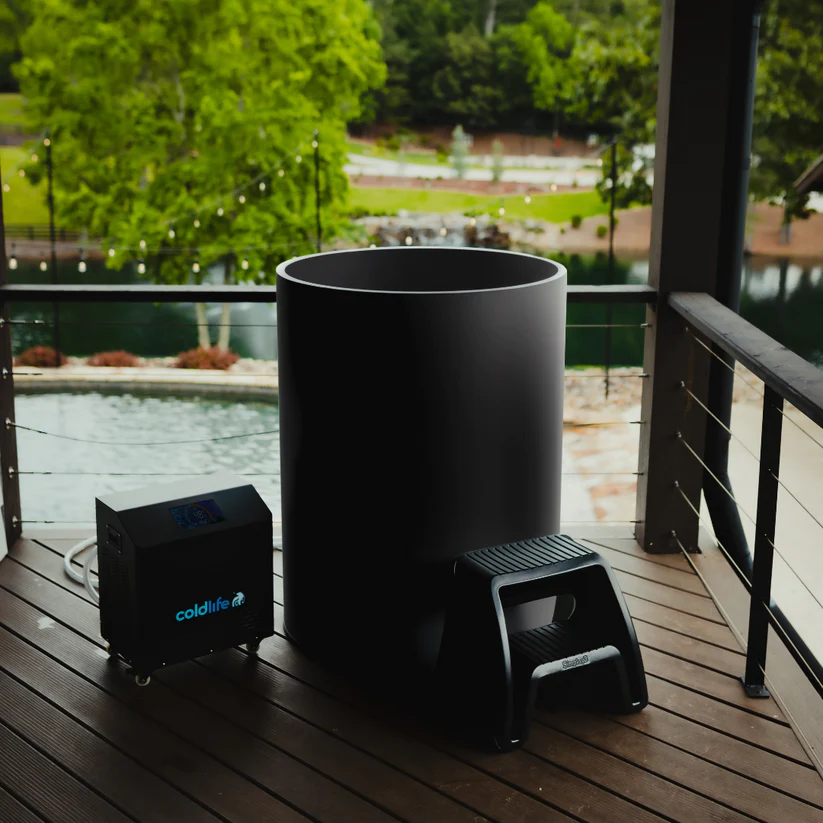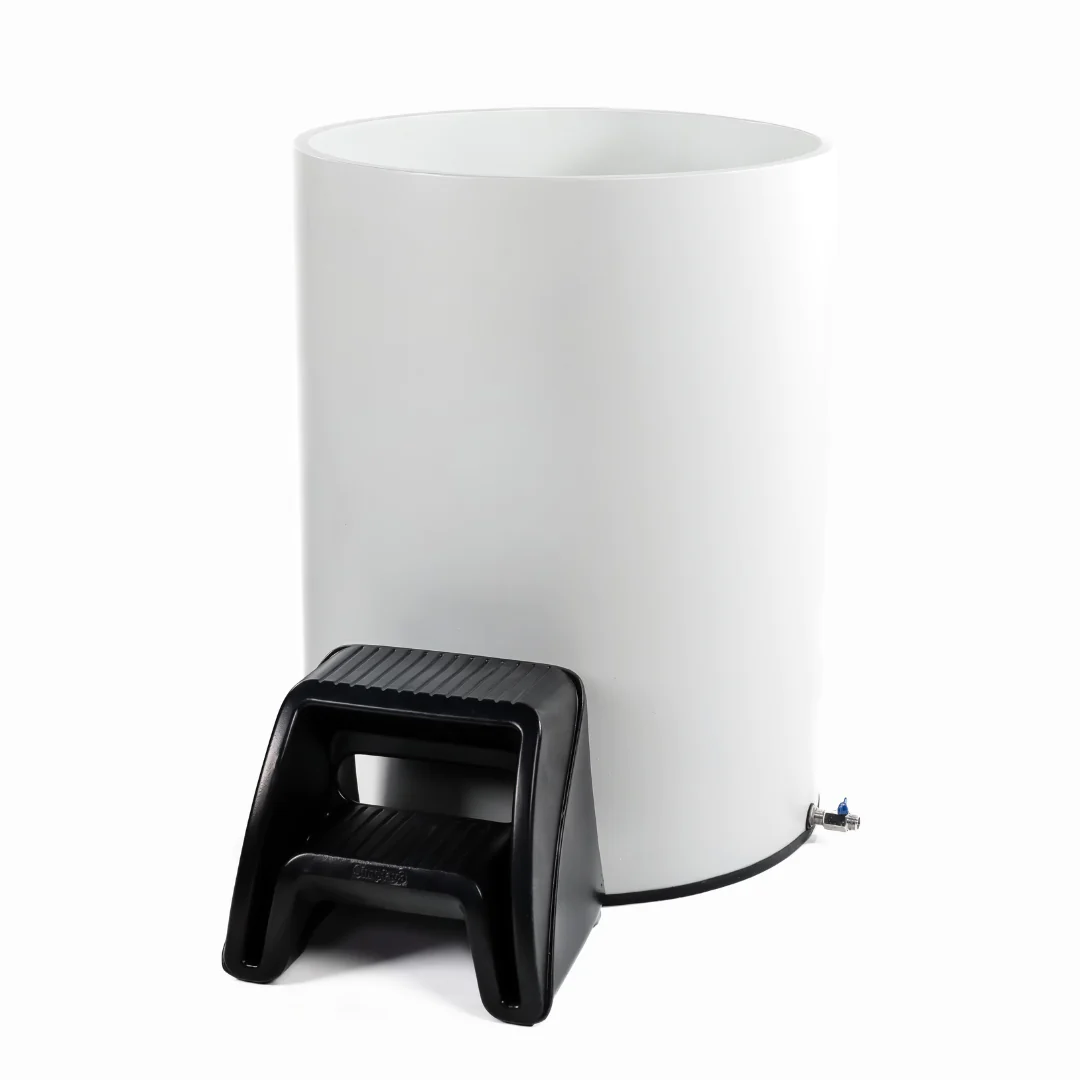Key Takeaways – What does Cold Plunge do to heart rate
Takeaway 1: Cold plunges elicit a “cold shock” response with physiological changes
When you immerse yourself in icy cold water, your body goes into panic mode. Your heart rate and blood pressure shoot up, and you might even find yourself hyperventilating. It’s all because of vasoconstriction and vasodilation, which basically means your blood vessels are narrowing and opening up like crazy due to the extreme temperature change. To compensate for this, your heart starts pumping blood faster to increase circulation. This whole process activates your sympathetic nervous system, triggering a cascade of reactions in your body.Takeaway 2: Cold plunges have immediate effects on breathing rate, heart rate, and blood pressure
According to the American Heart Association, taking a plunge into freezing water can cause some serious jumps in your breathing rate, heart rate, and blood pressure. It’s like your body is trying to go from 0 to 100 real quick! Studies have also shown that both cardiac output (the amount of blood pumped by the heart) and heart rate increase after sauna sessions or cold-water immersion. So yeah, expect some significant changes happening inside you when you take the plunge.Takeaway 3: Consistent cold plunges may have long-term benefits for resting heart rates
Here’s something interesting: although jumping into icy water initially makes your heart race like there’s no tomorrow, some studies suggest that if you keep doing it regularly over time – like an icy baptism routine – it might actually do wonders for reducing resting heart rates. Some folks even reported that their resting heart rates dropped after consistent ice-bathing experiences. But don’t forget – if you have health concerns like stress overload or existing cardiovascular conditions such as hypertension or arrhythmias, be sure to discuss it with your doctor before taking the leap. Remember, cold plunges might not just be about physical health. There’s some evidence that they can also give your mind a boost, improving mental clarity and even helping with symptoms of depression or anxiety. But hold your horses, more research is needed to fully understand these effects. So, if you’re up for it, why not give it a try? Just make sure to dive in with caution and get the green light from your doctor first. Stay cool!Our #1 Best Recommended Cold Plunge
1. For the ultimate combination of feeling refreshed and invigorated, consider our Cold Life Plunge Bundle. 2. Our plunge bundle has everything you need for a revitalizing cold plunge experience. 3. If you’re ready to take the plunge, check out our top-rated Cold Life Plunge Bundle for a frosty adventure today!Are you ready to redefine your limits with cold immersion?
Explore the compelling truth behind cold plunging and its remarkable benefits for mind and body.
Dive into the Cold Life Plunge Bundle now to embark on your journey to revitalization and strength. Transform your life today!
Here’s a Youtube Video about What does Cold Plunge do to heart rate
What does a cold plunge do to the heart rate? This question touches on how our bodies cope with sudden temperature changes, referred to as the Cold Shock Response.
Cold plunges cause vasoconstriction – a narrowing of blood vessels, which perhaps surprisingly, can increase heart rate initially. But regular exposure can lead to vasodilation over time that, according to the American Heart Association, may actually reduce resting heart rate.
Scientific research comparing sauna use with cold-water immersion discovered similar results – a temporary increase in heart rate followed by longer-term decreases.
So while initially your heart may beat faster during a cold plunge, consistent practice could lead to potential long-term benefits for your resting heart rate.
That said, there are risks and precautions associated with this practice; it’s not suitable for everyone and should be approached carefully. Yet beyond physiological effects, emerging research suggests cold plunges may also offer mental health benefits.

Understanding the Cold Shock Response in Cold Plunge
Imagine you’ve just plunged into a vat of icy water. You’re probably all too familiar with that sudden, sharp intake of breath, the heart pounding in your chest like a wild drum. This is your body responding to the drastic change in temperature; a physiological response aptly named the “cold shock” response, a direct impact of cold plunge on body.
The Role of Vasoconstriction and Vasodilation in Cold Plunge
This cold shock response triggers vasoconstriction – think of it as your blood vessels shrinking down to conserve heat. Meanwhile, vasodilation happens concurrently as an attempt to increase blood flow and heat delivery.
American Heart Association’s Stand on Cold Plunge’s Impact on Heart Rate
You see, according to the esteemed American Heart Association (AHA), immersing yourself in cold water can cause rapid increases not just in breathing rate but also heart rate and blood pressure. Yes indeed, my friend! The effect of cold water on heart rate can be quite intense.

Download this courtesy guide to optimize your sauna and cold plunge experience and health optimization.
Download the Free Guide TodayResearch Revealing the Effects of Sauna and Cold-Water Immersion on Heart Rate
All things considered, there are several studies which have revealed both cardiac output (that’s the amount of blood your heart pumps) and heart rate increasing significantly after cold-water immersion. Yes, you read that right. We’re talking about an actual physical change, not just a perceived one!
Potential Long-Term Benefits of Consistent Cold Plunge Practice on Resting Heart Rate
Now that I think about it, I remember some interesting studies suggesting that while there may be an immediate increase in heart rate during a plunge, over time with consistent practice there can potentially be beneficial effects on resting heart rates.
Understanding the Risks, Precautions, and Potential Mental Health Benefits of Cold Plunges
You see, however appealing these benefits might sound to you (and trust me they are!), it’s crucial to note that this cardiovascular stress could present risks for those with pre-existing conditions like hypertension or arrhythmias. People like us with such concerns should definitely consult our physicians before we try any new health adventures.
By the way, while I have your attention here: some research has shown potential benefits beyond physical health. I’m talking about improved mental clarity and reduced symptoms of depression or anxiety! Of course more research is needed to fully understand these effects—but isn’t it fascinating?

If you’re in the NYC area and looking to jumpstart your wellness regimen, consider checking out some of the best cold plunge pools in NYC. Not only do they provide an invigorating boost, but the effects of a cold plunge on the heart rate can improve cardiovascular health. This form of cold therapy can rapidly increase your heart rate, stimulating blood flow and oxygen delivery throughout your body. For those seeking a balance between heat and cold therapies, it’s worth investigating the best cold plunge and sauna routines. A common practice is to alternate between sauna sessions and plunges into cold water, which can lead to significant benefits including increased circulation and enhanced immune response. What time should you take a cold plunge though? Our guide on the best time to take a cold plunge will provide you with helpful information about when is optimal for dipping into chilly waters. Timing matters as it relates to your body’s circadian rhythms and recovery periods after workouts. If budget is a concern, rest assured that we’ve curated a list of some of the most affordable options for adding a cold plunge pool into your routine. Options range from portable inflatable tubs to more permanent home installations. And finally, if you’re unsure about how long your dip should last or what temperature settings are ideal for beneficial physiological responses, browse our resources on cold plunge temperature and time. It covers valuable information on the science behind cold plunges, including how they influence heart rate. A significant part of cold therapy involves proper breathing techniques, so it’s essential to learn the best breathing techniques for an effective cold plunge. Done correctly, this practice can heighten your focus, improve circulation, and potentially even elevate your mood.
My Personal Take about What does Cold Plunge do to heart rate
Hi there friend! I’m George, and I’ve dedicated my life to understanding the incredible world of saunas and cold plunges. You see, I’ve recently written a post titled “What Does Cold Plunge Do to Heart Rate: An In-depth Analysis” where I meticulously dissect the effects of cold plunges on our heart rate.
By the way, do you know ‘what does cold plunge do to heart rate’? It’s quite riveting; this exciting practice can stimulate your cardiovascular system, prompting it to pump more blood and thus potentially improving your heart’s health over time.
In any case, let me share with you some wonderful benefits of incorporating these practices into your lifestyle:
- Better Blood Circulation: Regular use of saunas and cold plunges can improve your blood circulation which in turn enhances overall well-being.
- Muscle Recovery: The cycle of heat from the sauna followed by the cold plunge aids in muscle recovery after intense workouts.
- Mental Resilience: The process teaches you discipline and mental toughness which translates into other areas of life.
In my humble opinion, trading a little discomfort for these amazing benefits is completely worth it! Words of advice? Why don’t you give it a shot? You may just find yourself falling in love with this invigorating practice too!
Our #1 Best Recommended Cold Plunge for most People
1. Have you ever wondered about a life where things are easily replaceable and durable? Discover how with our innovative product, ColdLife Plunge 1. 2. The concept of having something replaceable provides peace of mind, just like our ColdLife Plunge 1, it’s designed to last but can be replaced easily when the need arises. 3. Break free from the norm and experience the delight of owning something replaceable like our ColdLife Plunge 1, a product designed with you in mind.Discover the unparalleled benefits of cold immersion with ColdLife Plunge 1. Unleash your full potential with our innovative cold plunging solution. Explore the transformative effects on your body and mind. Elevate your lifestyle with ColdLife Plunge 1 today!
Frequently Asked Questions about What does Cold Plunge do to heart rate
1. Can a cold plunge increase heart rate?
Yes, immersing your body in cold water, also known as a cold plunge, can lead to an increase in heart rate due to the physiological response caused by vasoconstriction and vasodilation.
2. What is the “cold shock” response?
The “cold shock” response refers to the sudden change in temperature experienced during a cold plunge. It can cause an increase in heart rate and blood pressure, as well as hyperventilation.
3. Are there any potential benefits for heart health from consistent cold plunges?
Some studies suggest that consistent practice of cold water immersion may have beneficial effects on resting heart rates over time. Some individuals reported a drop in their resting heart rates after regular ice bathing experiences.
4. Should individuals with pre-existing cardiovascular conditions try a cold plunge?
Individuals with pre-existing conditions such as high levels of stress or existing cardiovascular conditions like hypertension or arrhythmias should consult their physician before trying activities like a cold plunge due to the potential risks and stress on the cardiovascular system involved.
5. Can taking a cold plunge improve mental health?
Some studies indicate that there may be benefits beyond physical health from taking a cold plunge, including improved mental clarity and reduced symptoms of depression or anxiety. However, more research is needed to fully understand these effects.
6. What precautions should be taken when considering a cold plunge?
When considering a cold plunge, it is important to listen to your body and start slowly if you are new to this practice. Take into account any pre-existing health conditions you may have and consult with your physician before attempting activities that involve drastic changes in temperature.
Now you know What does Cold Plunge do to heart rate , but that’s only the beginning of your journey here at Sweat N Chill Zone. If you found this post useful there’s more to learn to get you to the next step of your sauna & cold plunge journey. If you read our next articles you’ll be a step further than most people.
Before you go…
Takeaway 1: Cold plunges elicit a “cold shock” response with physiological changes
When you immerse yourself in icy cold water, your body goes into panic mode. Your heart rate and blood pressure shoot up, and you might even find yourself hyperventilating. It’s all because of vasoconstriction and vasodilation, which basically means your blood vessels are narrowing and opening up like crazy due to the extreme temperature change. To compensate for this, your heart starts pumping blood faster to increase circulation. This whole process activates your sympathetic nervous system, triggering a cascade of reactions in your body.Takeaway 2: Cold plunges have immediate effects on breathing rate, heart rate, and blood pressure
According to the American Heart Association, taking a plunge into freezing water can cause some serious jumps in your breathing rate, heart rate, and blood pressure. It’s like your body is trying to go from 0 to 100 real quick! Studies have also shown that both cardiac output (the amount of blood pumped by the heart) and heart rate increase after sauna sessions or cold-water immersion. So yeah, expect some significant changes happening inside you when you take the plunge.Takeaway 3: Consistent cold plunges may have long-term benefits for resting heart rates
Here’s something interesting: although jumping into icy water initially makes your heart race like there’s no tomorrow, some studies suggest that if you keep doing it regularly over time – like an icy baptism routine – it might actually do wonders for reducing resting heart rates. Some folks even reported that their resting heart rates dropped after consistent ice-bathing experiences. But don’t forget – if you have health concerns like stress overload or existing cardiovascular conditions such as hypertension or arrhythmias, be sure to discuss it with your doctor before taking the leap. Remember, cold plunges might not just be about physical health. There’s some evidence that they can also give your mind a boost, improving mental clarity and even helping with symptoms of depression or anxiety. But hold your horses, more research is needed to fully understand these effects. So, if you’re up for it, why not give it a try? Just make sure to dive in with caution and get the green light from your doctor first. Stay cool! Discover the best ways to cold plunge for optimal health benefits. If on a budget, check out our guide on the most affordable cold plunge options.George From Sweat N Chill Zone
George, the passionate founder of Sweat N Chill Zone, is an ardent advocate for holistic wellness through the healing powers of saunas and cold plunges. With a background in health sciences and a fervent dedication to sharing the benefits of thermal therapy, George curates an informative space, offering insights, tips, and expert advice to help individuals optimize their health and well-being through the transformative effects of heat and cold treatments. Through Sweat N Chill Zone, George aims to inspire and educate, fostering a community centered around rejuvenation and vitality.
Download this courtesy guide to optimize your sauna and cold plunge experience and health optimization.
Download the Free Guide Today

